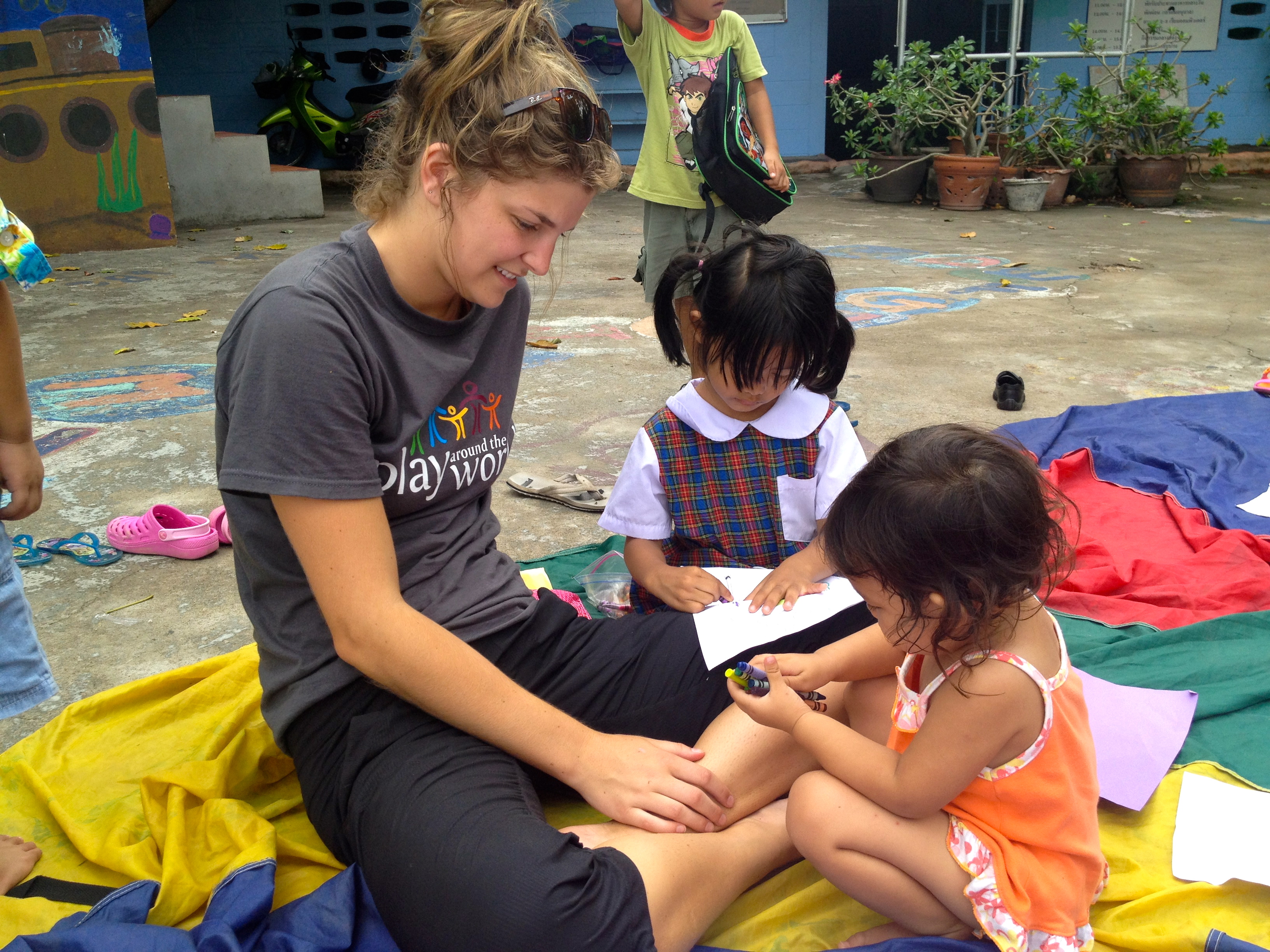FAQ's
Is Play Around the World right for you?
Play Around the World is a challenging, but rewarding placement. Are you willing to have your perspectives and ideas challenged? Do you have a background in play and recreation? Are you interested in learning from other cultures and do you bring your best self to engage in group learning? Then you should consider applying for PAW. We welcome you to contact the Program Director to inquire further.- Academic Requirements
- A grade point average of 2.3 or higher for the last 12 months of academic study.
- We recommend that students enroll in the Play Leadership course (KRLS 421) offered Winter term.
Note: Students will be manually registered for the two Play Around the World courses (KRLS 440 and KRLS 441) or for a full-time practicum placement through the Faculty of Kinesiology, Sport, and Recreation
- Commitment/Time Investment
- PAW requires a significant investment of time during the winter academic term as students are involved in equipment drive collection, their own student-led funding applications, and a micro placement in Edmonton delivering play programming.
- Travel typically takes place in May, and students return in August. The total length of the placement is three months.
- Leaders (students from the previous PAW team) are recruited to help with the selection and preparation of teams. In addition, leaders travel with the team and provide an orientation to the community, the projects, hospitals etc. for the first several weeks of the program.
- Cost
Approximately between the range of $4000 - $6000 per student. The cost includes flight, accommodation, ground transportation, language lessons, food/water, and incidental expenses.
The PAW program also requires that students pay for their passports, visa's, immunizations and tuition.
- Immunizations and Health
- After committing to the project contact AHS Capital Health Travel Health Services (780-735-0100),
- AHS Travel Health Services' knowledgeable and helpful staff will provide reliable, up-to-date information about health risks according to country or region, required and recommended vaccines, and information about preventing travel-related illnesses and international health.
- Staff are extremely knowledgeable and helpful, they will inform you which immunizations are compulsory for entry to Thailand and Cambodia, and which are optional
- PAW will facilitate a health information session for leaders and participants with a travel health nurse
- Be aware that it may take 6 - 8 weeks to get all the immunizations you need. Book your first appointment in March
- Passports
Students are responsible for obtaining passports and visas for their travel.
You will need passport photos (we advise 4 copies) in case you need them for passports, visa's or other requirements.
If you have a valid passport that expires later this year, check with the passport office. Your passport must be valid for 6 months after your expected return.Up-to-date information about passports from Foreign Affairs and International Trade Canada
- Visas
Thailand
- Apply online at least one month before departure.
- Takes approximately a week once the forms and pictures are received
Cambodia
- Cambodian visas are obtained at the airport upon arrival in the country.
Peru
- Visa's for Peru are obtained at the airport on arrival in the country.
NorthWest Territories
- No passport or visa is required for Fort Providence, NWT
- Where will you work?
PAW teams have worked in orphanages, with street kids projects, at hilltribe centres and schools for children experiencing disabilities.
PAW leaders (typically past PAW team participants) facilitate an orientation to ensure PAW participants are familiar with their setting, ensure familiarization with the various centres and after a needs assessment, the group will plan and deliver activities in play, recreation, sport, dance etc.This could entail activities such as:
- teaching a physical education class at a school for children with disabilities
- leading play activities for classroom teachers, doing crafts and games with children at an orphanage, or
- facilitating a special event or sport-focused initiative
